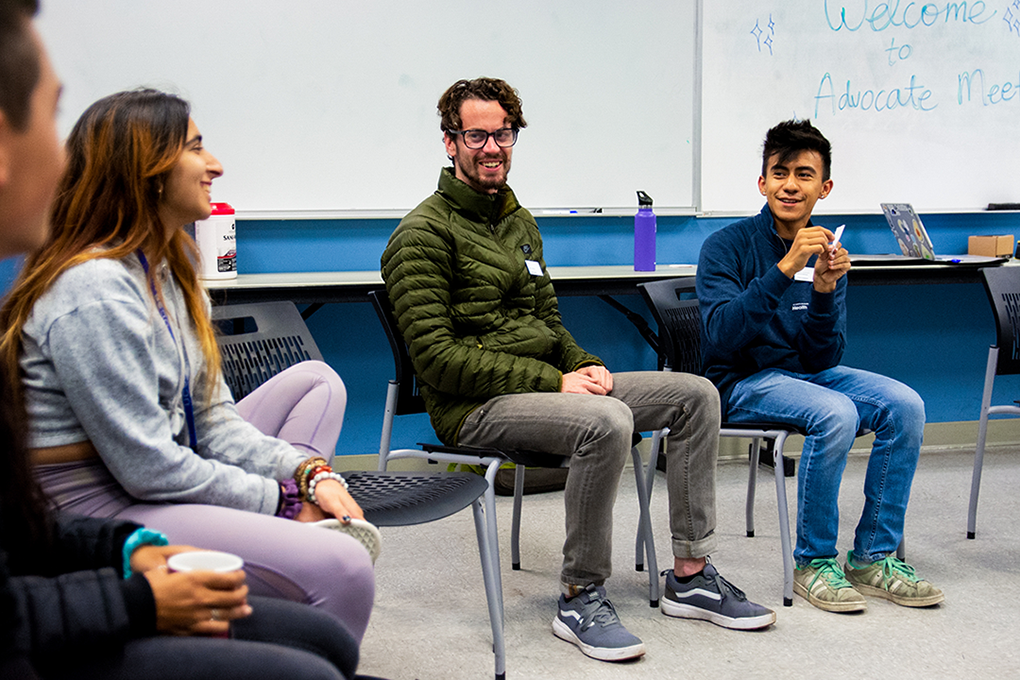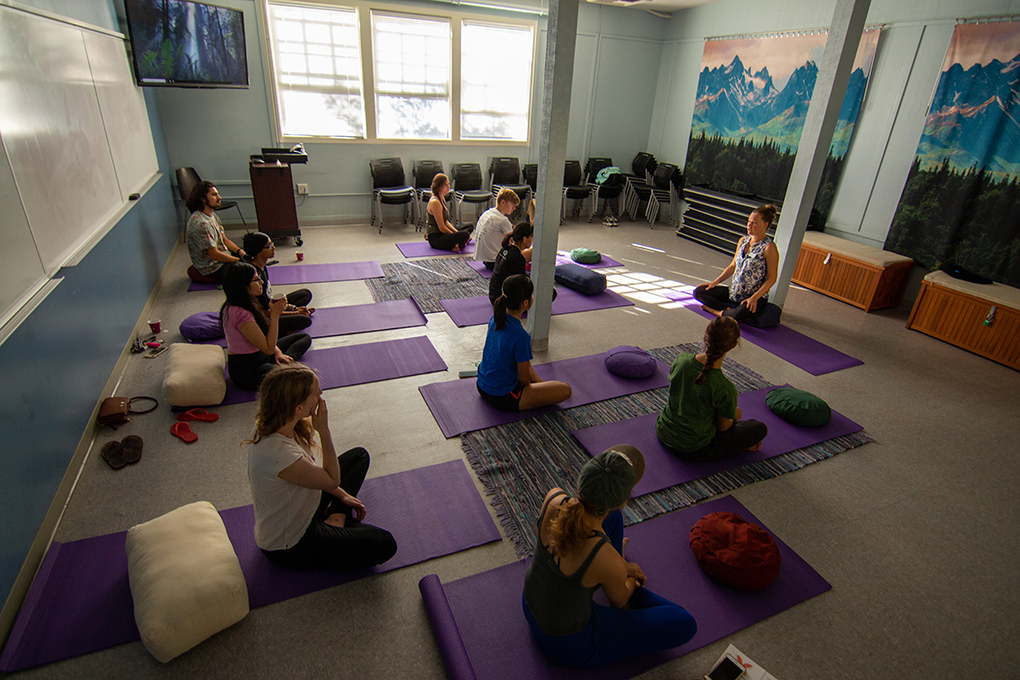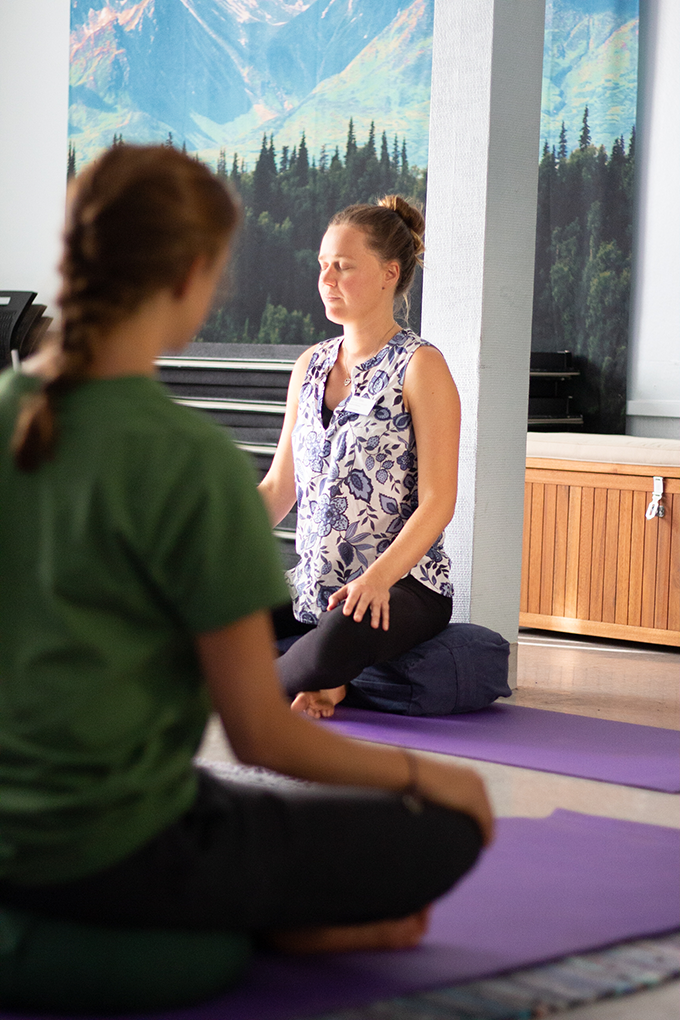College can be a stressful time for many reasons, whether it be living away from home, academics, work or relationships. Health and Wellness aims to provide short-term and long-term stress reduction education and opportunities for students not only to improve academic performance but aid in the process of creating a long, happy and healthy life.
Stress is the body's reaction to any change that requires an adjustment or response. The body reacts to these changes with physical, mental, and emotional responses. Stress is a normal part of life. Stress can be positive, keeping us alert, motivated, and ready to avoid danger. Stress becomes negative when a person faces continuous challenges without relief or relaxation between stressors. As a result, the person becomes overworked, and stress-related tension builds.
What would you like to learn more about?
Programs
Rejuvenation Station
Come to Rejuvenation station to de-stress and rejuvenate. Get a free chair massage with Licensed Massage Therapists. Come by for a free bluebook, cup of tea, massage and mindful activities.

Resources
How to Make Stress your Friend
How you think and act can transform your experience of stress. Oxytocin’s main roles in your body is to protect your cardiovascular system from the effects of stress. So when you reach out to others under stress, either to seek support or to help someone else, you release more of this hormone, your stress response becomes healthier, and you actually recover faster from stress.

Stress Management Techniques
Learn and practice relaxation techniques; try meditation, yoga, or tai-chi for stress management.
Exercise regularly. Your body can fight stress better when it is fit.
Eat healthy, well-balanced meals.
Learn to manage your time more effectively.
Get enough rest and sleep. Your body needs time to recover from stressful events.
Don't rely on alcohol, drugs, or compulsive behaviors to reduce stress.
Seek out social support. Spend enough time with those you enjoy

Relaxation Techniques
Breath focus: In this simple, powerful technique, you take long, slow, deep breaths (also known as abdominal or belly breathing). As you breathe, you gently disengage your mind from distracting thoughts and sensations.
Body Scan: This technique blends breath focus with progressive muscle relaxation. After a few minutes of deep breathing, you focus on one part of the body or group of muscles at a time and mentally releasing any physical tension you feel there.
Guided imagery: For this technique, you conjure up soothing scenes, places, or experiences in your mind to help you relax and focus.
Mindfulness meditation: This practice involves sitting comfortably, focusing on your breathing, and bringing your mind's attention to the present moment without drifting into concerns about the past or the future.
Yoga, tai chi, and qigong: These three ancient arts combine rhythmic breathing with a series of postures or flowing movements. The physical aspects of these practices offer a mental focus that can help distract you from racing thoughts.

Library Guide for Wellbeing
For FREE additional readings and resources on Stress Reduction, check out our UC Santa Barbara Library Well-being LibGuide. Here you can find curated books and more on this health topic that you can download and read on your computer or mobile device... FREE!
Here are some of just the many books offered at our LibGuide!